ICC Origins
In the aftermath of the Second World War (1939-1945) the international community recognised the need to deal with mass atrocities – particularly those committed by Germany and Japan - at the international level. The International Military Tribunal (IMT) in Nuremburg, Germany, and the Tokyo War Crimes Tribunal, established as first generation tribunals to prosecute high-level individuals complicit in war crimes, came into force through the 1945 London Agreement signed by the major Allied powers (the United States, the United Kingdom, France and the Soviet Union). The Agreement included a charter for the establishment of an international military tribunal in which the major Axis war criminals would be tried for war crimes that had no particular geographical location. Additionally, the London Agreement included the Nürnberg Charter, which created four categories of international crimes; crimes against the peace involved the initiation of war, war crimes involved murder ill treatment and deportation, crimes against humanity involved persecutions of civilians for race, ethnicity, political or religious beliefs, and genocide, which involved bringing about the destruction of a particular national, ethnic, racial or religious group. The Nürnberg Charter was quickly followed by the Tokyo Charter and the trials of Japanese war criminals by the International Military Tribunal for the Far East.
As WWII drew to a close several attempts at determining an enforceable definition of 'war crimes' eventually culminated in four Geneva Conventions revised and adopted in 1949. The Geneva Conventions established legal guidelines for the treatment of combatants, prisoners of war and civilians during wartime.
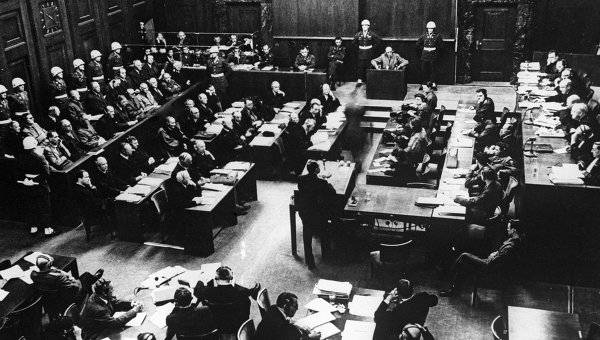 Nuremberg Trials. Image source
Nuremberg Trials. Image source
The idea of an international criminal justice system – largely a by-product of the end of the Cold War – thus began to emerge in the form of negotiations surrounding the ICC statute. Simultaneously, however, events in Yugoslavia, Sierra Leone and Rwanda saw the world witness mass atrocities for which the international system at the time was unprepared. In response, ad hoc tribunals were established to address each situation, although these tribunals had limited mandates and jurisdiction authorised by the UN. Undoubtedly the events of WWII, the dissolution of Yugoslavia and the genocide in Rwanda had a significant impact on the decision to construct the Rome Statute which established the permanent ICC.
ICC Jurisdiction and Case Selection
The signing of the Rome Statute marked, for the first time in history, a willingness by States to accept the jurisdiction of an international court to prosecute criminals for offenses of an international nature. The Court is mandated to try individuals for crimes which are considered international in nature, or harmful to the international community, namely, war crimes, crimes against humanity, genocide and crimes of aggression. A consensus on the definitions of each of these crimes is absolutely imperative to delineating the ICC’s areas of jurisdiction and informing procedures and outcomes of cases. The definitions of genocide and of what constitutes ‘aggression’ have been notoriously problematic, as witnessed in the case of Rwanda wherein the international community remained reluctant to classify the 1994 slaughter as a ‘genocide,’ as the label would require an intervention under international law.
‘Crimes against humanity’ are considered to be “acts committed as part of a widespread or systematic attack directed against any civilian population” such as murder, enslavement, forcible removal or deportation, torture, any form of sexual violence, and the crime of apartheid. ‘War crimes’ include breaches of the Geneva Conventions and other crimes planned and committed on a large scale during armed conflict. These may include murder, torture, intentional attacks against civilians and infrastructure, pillaging, sexual violence and enlisting child soldiers. ‘Genocide,’ as outlined in the Rome Statute, concerns acts committed with the intent to destroy national, ethnical, religious or racial groups, while ‘crimes of aggression’ – adopted during the review of the Rome Statute in 2010 – is considered to be the “planning, preparation, initiation or execution of an act of using armed force by a State against the sovereignty, territorial integrity or political independence of another State.”
The ICC is an independent entity able to try individuals for crimes within the jurisdiction of the court, without a mandate from the United Nations. The ICC is intended to act complementarily with a state’s national courts, and is enabled to try individuals only when national courts are unwilling or unable to do so. Understanding the notion of complementarity is central to the realisation that national courts take priority over the ICC, unless they are unable or unwilling to conduct trials. Signatories to the Rome Statute pledge to submit themselves to the jurisdiction of the ICC for the crimes outlined in the Statute, however, the ICC may only exercise jurisdiction over member states for crimes which occurred after the establishment of the ICC in 2002. The Court may not pursue offenses retroactively, unless authorised by the member state of the individual in question.
The Court prosecutes individuals, but not groups or states. None are exempt from prosecution based on status or Office, and amnesty cannot be used as defence before the Court. Those who committed crimes while under the age of 18 are, however, exempt from prosecution.
ICC: Structure
The Court is comprised of four organs. The Presidency is responsible for administration and the presentation of the Court in the public arena, as well as ensuring that sentences issued by the Court are enforced. Three judges – two vice presidents and the President – are elected to the Presidency by a total majority of 18 judges for a maximum of two three-year terms. The 18 judges responsible for electing the Presidency fall under the second organ, the Chambers, which consists of three judicial divisions responsible for conducting Pre-Trials, Trials and Appeals. The third organ of the Court is the Office of the Prosecutor, which acts as an independent organ mandated to receive and evaluate information pertaining to situations or alleged offenses within the jurisdiction of the ICC, and decide whether there exists reasonable cause to initiate an investigation into crimes outlined in the Statute. Lastly, the Registry is responsible for providing operational support to the Chambers and the Office of the Prosecutor to ensure fair, impartial and public trials. The Registry is also obligated to safeguard the rights of victims, witnesses and the defence, as set out in the Rome Statute.
2010 Review
The 2010 Review Conference of the Rome Statute held in Kampala, Uganda, hailed a landslide moment for the ICC as the crime of aggression was officially defined and adopted as a crime subject to the jurisdiction of the ICC. Aggression refers to the “invasion, military occupation, and annexation by the use of force, blockade of the ports or coasts, if it is considered being, by its character, gravity and scale, a manifest violation of the Charter of the United Nations.” The crime of aggression becomes subject to the jurisdiction of the ICC after January 2017 following a two-thirds majority by States Parties and ratification by at least 30 States Parties.
ICC and the UN
The ICC, while independent, has formed an institutional relationship with the UN Security Council (UNSC), formalised in 2004. The UN Security Council, consisting of five permanent representatives of the five permanent member states with veto power (called the P5 and comprising of the United Kingdom, Russia, China, France and the United States) and 10 non-permanent members elected by the General Assembly for a two-year term, may refer a case to the ICC invoking Chapter VII of the UN Charter. Additionally, the UNSC may defer an investigation or prosecution for a renewable period of twelve months.
ICC and the United States
Since the ICC’s establishment in 2002 the Court has experienced active opposition from the US government due to the possibility that US military and political leaders will be held accountable to politically-motivated international justice for their actions in warfare. These concerns were articulated particularly by the Bush administration, which threatened to veto all UN peacekeeping operations unless granted a twelve-month blanket-immunity, which was renewed for the second time a year later – although not without repercussions. Public outcry spiked over treatment of prisoners of war in Iraq and the notorious Guantanamo Bay, an offshore prison for criminals considered a threat to American national security. Resultantly, Washington was unable to renew its immunity but made a point of continuing to oppose ICC jurisdiction. It must be noted that the US did respond to the human rights violations in Darfur, endorsing the UN Security Council’s referral of the situation to the ICC. Under the Obama administration the US’s cooperation with and support for the ICC has grown substantially, the administration continues to lobby for a stronger role for the Security Council in the ICC. This clearly has implications for the Court’s ability to act as a neutral and independent institution.
The ICC in Africa
Thus far, the ICC has undertaken nine investigations in Africa. While the Democratic Republic of the Congo (DRC), the Central African Republic (CAR) and Uganda were self-referrals, Sudan and Libya were referred to the ICC by the UN Security Council, and Kenya and Mali by the Office of the Prosecutor.
The Kabila’s DRC government referred the situation of ongoing violence in the Eastern DRC to the ICC in 2004, resulting in arrest warrants for six rebel leaders, but sparking accusations that the ICC was prosecuting selectively in exchange for government cooperation. The CAR made a self-referral to the ICC in 2004 for international crimes committed on its soil. The ICC subsequently issued an arrest warrant for former DRC Prime Minister, JP Bemba, who stands accused of war crimes and crimes against humanity committed in the CAR. The Ugandan government referred the Lord’s Resistance Army (LRA) to the ICC in 2005, resulting in arrest warrants for a five LRA leaders including the infamous Joseph Kony.
Kenya represented the first case in which the ICC Prosecutor invoked proprio motu under Article 15, allowing former Prosecutor, Moreno-Ocampo, to refer Kenya due to the 2007 election violence.
The Prosecutor also referred Côte d’Ivoire - a non-signatory to the Rome Statute – to the ICC in 2011 following the 2010 election violence. While Côte d’Ivoire is not a signatory, is has accepted the Court’s jurisdiction. Mali was referred by the Prosecutor in 2013 due to evidence of war crimes committed by Ahmad Al Faqi Al Mahdi, leader of an Islamic extremist group Ansar Dine, who particularly violated customary jus in bello (conduct during warfare) conduct by targeting religious sites.
Libya and Sudan were both referred to the ICC by the UN Security Council in 2011 and 2005 respectively. After the UNSC’s referral to the ICC of human rights abuses in southern Sudan, the ICC issued two arrest warrants; one for the Sudanese Minister of State for Humanitarian Affairs accused of crimes against humanity, and one for a Janjaweed leader. In 2009 and 2010, President Bashir also received an arrest warrant. Sudan’s referral stipulated that the country was to give its full compliance despite its non-signatory status, although it has thus far refused to cooperate, claiming that it would investigate its own war crimes, but not the accused men. This has been further aggravated by the African Union’s own urging of its member states to not comply with ICC investigations.
Libya received arrest warrants for Gadaffi and two of his upper-echelon leaders. Following the death of Gadaffi, Libya conflicted with the ICC over where the two remaining detainees would be tried. While under the principle of complementarity, Libyan courts were willing to try the accused, the ICC was concerned over Libyan courts’ ability to do so impartially. This raised further criticisms of ICC procedure as there are no established methods or criteria for determining the competency of national courts.
Africa, South Africa and the ICC
With due respect, what offends me most when I hear criticisms about the so-called African bias is how quick we are to focus on the words and propaganda of a few powerful, influential individuals and to forget about the millions of anonymous people that suffer from these crimes … because all the victims are African victims.
- Fatou Bensouda, ICC Prosecutor
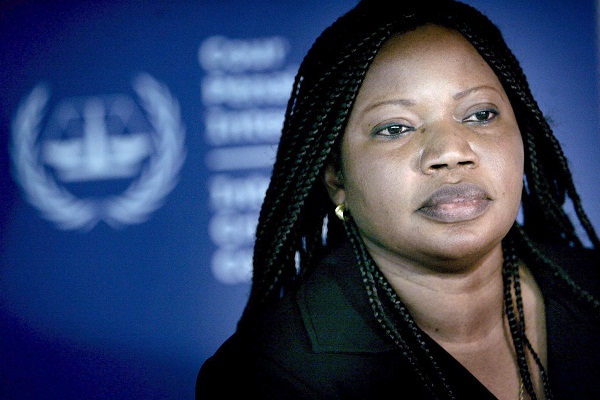 Fatou Bensouda, the first African Chief Prosecutor from the Gambia. Image source
Fatou Bensouda, the first African Chief Prosecutor from the Gambia. Image source
Recent controversy surrounding the visit of Sudanese president, Omar al-Bashir, to South Africa in July 2015 has witnessed the re-emergence of debates surrounding the role of the ICC in African states, and has particularly cast light on South Africa’s own relationship with the international prosecuting body. As the twenty-third State Party to sign and ratify the Rome Statute in 1998, South Africa has a longstanding relationship with the ICC dating back to the country’s role in an informal group – the Assembly of States Parties (ASP) – which pushed the Rome Statute through its ratification process. In 2002, following the establishment of the ICC, the South African government drafted the obligatory Implementation of the Rome Statute of the International Criminal Court Act 27 of 2002(ICC Act), which entered into force in August of the same year. The ICC Act hailed an important moment for South Africa, as preceding domestic legislation did not include war crimes or crimes against humanity. The Act, under section 4(3), also allows South African courts universal jurisdiction to prosecute individuals for the international crimes of genocide, war crimes and crimes against humanity. South African courts are thus extended jurisdiction to prosecute individuals who, after committing the crime, are present in South Africa – as in the case of al-Bashir who had been indicted for war crimes, crimes against humanity and genocide by the ICC in 2009 and 2010. Conversely, South Africa is also granted extraterritorial jurisdiction over South African citizens and residents. Under Article 27 of the Rome Statute, South African courts are afforded the ability to override immunities which would otherwise apply to government officials on diplomatic visits. In lieu of this, the South African government’s claims that they did not arrest Bashir because of his immunity appears weak and without legal grounding.
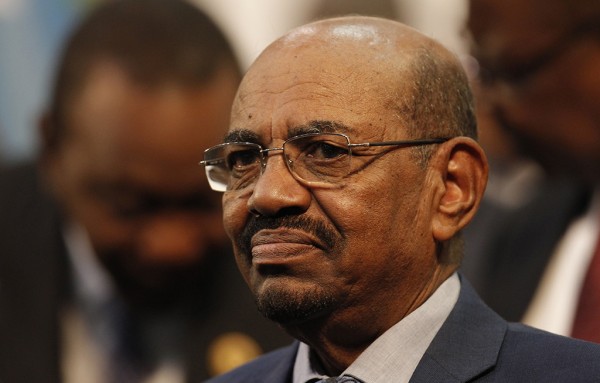 Sudanese President Omar al-Bashir, wanted by the ICC for war crimes, crimes against humanity and genocide. Image source
Sudanese President Omar al-Bashir, wanted by the ICC for war crimes, crimes against humanity and genocide. Image source
Why are African States Reluctant to commit to the Rome Statute?
Why did the current government of South Africa aid Bashir in evading the law? Central to the answering of this question are several African-led criticisms of the ICC underscoring the tensions inherent in Africa’s willingness to commit to a supranational criminal justice system. African countries have undergone a significant shift from calling on all to support the ICC, to proposing amendments to the Rome Statute which would undermine the international court’s independence. Furthermore, the African Union’s recent call for non-cooperation with the ICC illustrates the extent to which the significant cognitive dissonance has swept the continent’s previously-unanimous desire for human rights justice. In order to understand this volte-face (about-face) it is necessary to contextualise Africa’s concerns over ICC neutrality.
Debates surrounding the role of the ICC in Africa
African countries do not stand united on the issue of ICC membership. Kurt Mills (2012), an international law and human rights scholar, notes that the African Union’s hostility towards the ICC has also created deep-seated divisions among African states themselves. One potential explanation for these tensions is that the international criminal justice regime remains in a state of flux wherein the norm of ceding to a supranational criminal justice body has not yet cascaded.
Mills (2012) has put forward the argument that the UNSC’s referral power has placed it at odds with the AU, and has facilitated tensions between the AU and the ICC. While the first two African cases – regarding the situation in northern Uganda and the eastern DRC – were referred by their own governments, the third referral came from the UN Security Council in lieu of the escalating humanitarian crisis in Darfur, formerly part of Sudan. The ability of the UNSC to refer countries has fuelled the perception that skewed power relations between the developed global North and the developing global South has perpetuated dominance of weaker states by more powerful states in the North. As the UNSC P5 is has no African representation, and the ICC is largely a European venture, it begs the question not only of representation but also of who the ICC is accountable to.
ICC: A Neo-Colonial Venture?
Since its first case against the Congolese rebel leader Thomas Lubanga, the ICC has been criticised for its apparent bias towards African leaders, as the majority of ICC cases have come from Africa. Both the AU Chairperson and Rwandan president, Paul Kagame, have accused the ICC of being partisan and of having an African bias, despite the fact that the first two African cases were referred by their respective governments.
In July 2008 the AU Assembly responded by passing a resolution which called on non-African states – particularly EU member states – to halt the practice of arresting and trying African leaders, claiming that this “is a clear violation of the sovereignty and territorial integrity of these states.” Thus, informed by the perception that Western states were using the ICC to conduct a legal campaign against African leaders, tensions continued to rise between the AU and the ICC as the AU remained convinced that EU states were abusing the ICC’s universal jurisdiction to target African leaders. This claim, however, has no basis as the ICC has been primarily concerned with states who have accepted its jurisdiction. Of the ICC’s membership, Africa is the most represented region (one-third of states who have signed the Rome Statute are African) and the majority of cases on the continent have been opened either at the request or referral of African governments, or via referral by the UN Security Council wherein African governments are represented.
Thus, while the Darfur referral sparked apparent tensions between the AU, the UN and the ICC, it must also be noted that a further potential reason for the AU and the Sudanese government’s reluctance to allow for universal jurisdiction may be explained by the desire to handle the situation without outside interference and prove that the AU is, in fact, capable of resolving the continent’s disputes. Keeping in mind the abovementioned principle of complementarity, the ICC would have no need to continue investigations if Sudanese national courts were undertaking their own investigations into the reported war crimes and crimes against humanity within their jurisdiction. Sudan had even proved reluctant to allow a UN peacekeeping contingent into Darfur, conceding only when the peacekeeping mission assumed a hybrid nature co-led by the UN and AU peacekeepers – a first in UN peacekeeping history.
The ICC and Peace Processes
This explanation reflects the argument made by some that the ICC’s investigations and indictment of Bashir have undermined peace negotiations and interfered with attempts at achieving stability on the continent – this, to an extent, can be validated when remembering Bashir’s reaction to his indictment; upon learning of his indictment for war crimes and crimes against humanity in 2009, the Bashir government expelled thirteen foreign aid and humanitarian groups (around 6,500 aid workers) impacting severely on the thousands of internally displaced persons requiring access to healthcare, food and shelter.
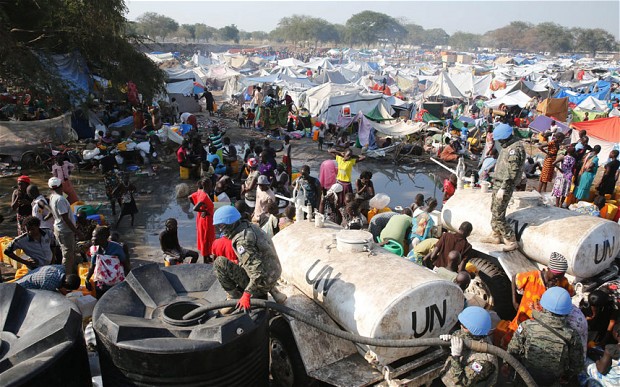 Many internally displaced persons rely heavily on the support of aid agencies such as the UN. This image depicts a UN refugee camp in Darfur, Sudan, providing clean water, food, shelter and protection for those affected by the ongoing conflict. Image source
Many internally displaced persons rely heavily on the support of aid agencies such as the UN. This image depicts a UN refugee camp in Darfur, Sudan, providing clean water, food, shelter and protection for those affected by the ongoing conflict. Image source
During a temporary ceasefire agreement or post-conflict peace-building setting, some argue that the indictment of a sitting head of state (such as Bashir or Gadaffi in Libya) may undermine already-fragile peace processes. For example, when arrest warrants were issued for Bashir and Gadaffi, both Sudan and Libya were experiencing ongoing conflict and violence, and many felt that the ICC could have caused either leader to become even more repressive and violent in retaliation. In Uganda, while the ICC had issued arrest warrants for a number of rebel leaders, this complicated the negotiation process as the rebel leaders refused to agree to a ceasefire or enter negotiations until all charges had been withdrawn. Thus, it has been argued that the ICC with its narrow focus on criminal justice has the potential to destabilise peace negotiations.
Why does the ICC investigate mainly African cases?
It is of course also necessary to consider that the international justice regime has legitimate reasons for deciding to undertake investigations primarily into African cases. The Rome Statute establishes the ICC’s jurisdiction as extending only as far back as the establishment of the ICC itself – thus, no crimes committed before July 2002 are investigated.
Secondly, the ICC’s jurisdiction is limited to war crimes, crimes against humanity, genocide, and since 2010, crimes of aggression. Within these offences, the ICC may only investigate nationals of countries who have accepted the Court’s jurisdiction or who have been referred by the UNSC. Furthermore, adhering to the principle of complementarity, in cases where legitimate and credible national investigations are underway the ICC must afford priority to national courts.
Professor Kamari Clarke of Yale University posits that a third potential reason for the ICC’s supposed African bias may lay in the continent’s structural inequalities, where underdeveloped state institutions and competition for resource extraction characterises the context in which many struggles for power occur, often violently, through the attempt to monopolise resources and negotiate terms of extraction with foreign firms and former colonial powers. This, explains Dr Clarke, could account for the often violent nature of (many) African power struggles and the subsequent devastating humanitarian consequences.
Conversely, Charles Achaleke Taku, an international lawyer involved in the Rwandan tribunal (ICTR) and the Special Court for Sierra Leone has argued that a number of African leaders remain "neo-colonial puppets" of former colonising regimes which have aided them in retaining power in exchange for the maintenance of a neoliberal hegemonic agenda. These leaders, contests Taku, trade in opposition to state power (see the case of Museveni's referral of the LRA) which in turn fosters the growth of regime stability and the proliferation of a Western hegemonic liberalism. The issue therein, according to Taku, is that tensions between the ICC and the AU arises as "ICC prosecutorial policies towards Africa are destabilising and insensitive to other avenues put in place by the AU to provide African solutions to African problems. This was witnessed in the opposition by the AU and Sudan to Bashir's 2009 indictment as concerns rose that a prosecution of the incumbent sitting president would spark friction and aggravate an already fragile situation, deterring peace talks between rebel groups and the government of Sudan.
Abdul Tejan-Cole, Executive Director of the Open Society Initiative for West Africa (OSIWA) takes issue with the neo-colonial critique, and instead contends that the ICC's targeting of African states is both warranted and necessary. He reminds us that an ICC intervention signals the failure or inability of a state to effectively deal with in stances of mass atrocities and human rights abuses. Under the principle of complementarity, a state's national court takes precedence over the ICC unless national courts are unable or unwilling to undertake investigations and prosecutions. Aside from the fact that many African cases stem from referrals made by the countries themselves, the focus of the ICC on Africa indicates that African countries lack the judicial infrastructure and capacity needed to successfully undertake cases relating to the offenses outlined in the Rome Statute of 1998.
Commenting on a further criticism that the ICC is attempting to override African state sovereignty by disregarding its own principle of complementarity, Mararet deGuzman, Associate Professor of Law, argues that this claim is premised on a false perception of the ICC's jurisdiction. DeGuzman notes that the appointment of an African Prosecutor, Benzou Fatou Bensouda, is a major step in dissuading the perception that the ICC harbours an African bias, and notes that while criticism has come predominantly from African leaders and elites, the ICC continues to enjoy widespread support from African civil society. The election of Bensouda will perhaps partially remedy a further concern that the ICC applies Western legal processes and standards to an African context, and is thus insensitive to African voices and alternative methods of national post-conflict reconciliation such as traditional justice mechanisms.
In response to the perceived African bias of the ICC, debates have emerged surrounding the potential for an African Court of Justice to find ‘African solutions to African problems.’ As the ICC cannot prosecute crimes prior to its establishment in 2002, the trial of former Chadian dictator, Hissene Habre, raised the possibility of an African trial of an international character. The case of Habre, accused of gross human rights abuses, is the first universal jurisdiction trial (national trial of an international crime) to take place in Africa, and will thus serve as a test-case for Africa and the AU’s capability to perhaps withdraw from the ICC and establish its own continental court of justice.
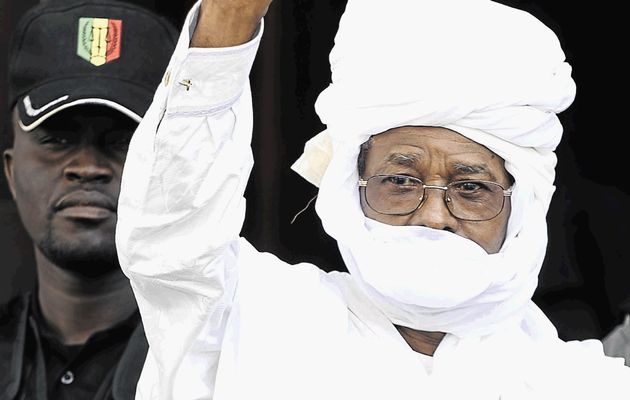 Former Chadian President, Hissene Habre. Image source
Former Chadian President, Hissene Habre. Image source